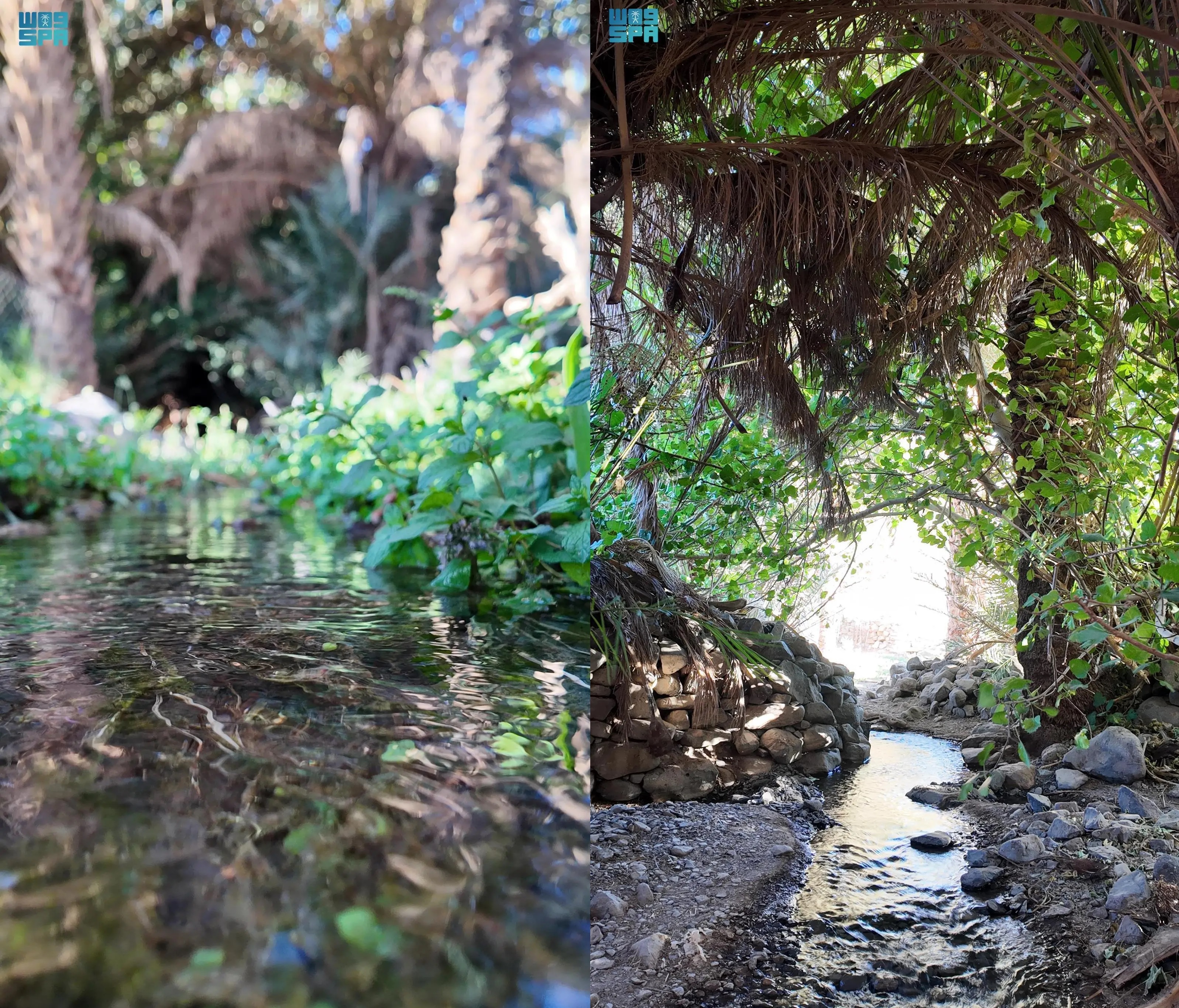
‘Ain Shallal’: A Flowing Legacy and Lifeline for AlUla’s People and Farms
The continuously flowing waters of “Ain Shallal” have streamed for hundreds of years in Shallal village, west of AlUla Governorate, maintaining their role as a vital water source that nourishes farms and revitalizes pastures.
Its flow serves as a lifeline for local residents, who have long relied on it to water their livestock and irrigate their crops—embodying the enduring nature of natural resources despite changing conditions over the decades.
Surrounding the spring are palm groves and fruit-bearing farms, reflecting the deep connection between people and water as an indispensable element of agricultural life.
Despite advancements in modern irrigation techniques, local residents continue to adhere to their ancestors’ traditional methods of water distribution—precise and equitable—through channels, aflaj systems, and water clocks that regulate irrigation shares and the allocation of water among landowners.
One of the village residents, Abdulrahman Al-Balawi, emphasized the importance of learning water management and distribution from a young age. “The aflaj, water clocks, and channels were not merely irrigation tools, but a way of life that generations in the village were raised on, one after the other,” Al-Balawi said.
He noted that this traditional water system reflects a deeply rooted heritage, where water was not merely used for irrigation but managed within a well-structured social system based on mutual understanding and respect—reflecting the community’s unity around the blessing of water.
“Ain Shallal” tells a story of resilience and stands as a unique model for natural resource management in a resource-scarce environment, where the human experience overflows with wisdom and adaptability.
Its waters continue to flow as they have for centuries, bearing witness to the land’s generosity and the perseverance of its people.








